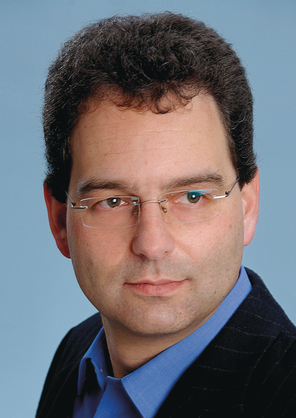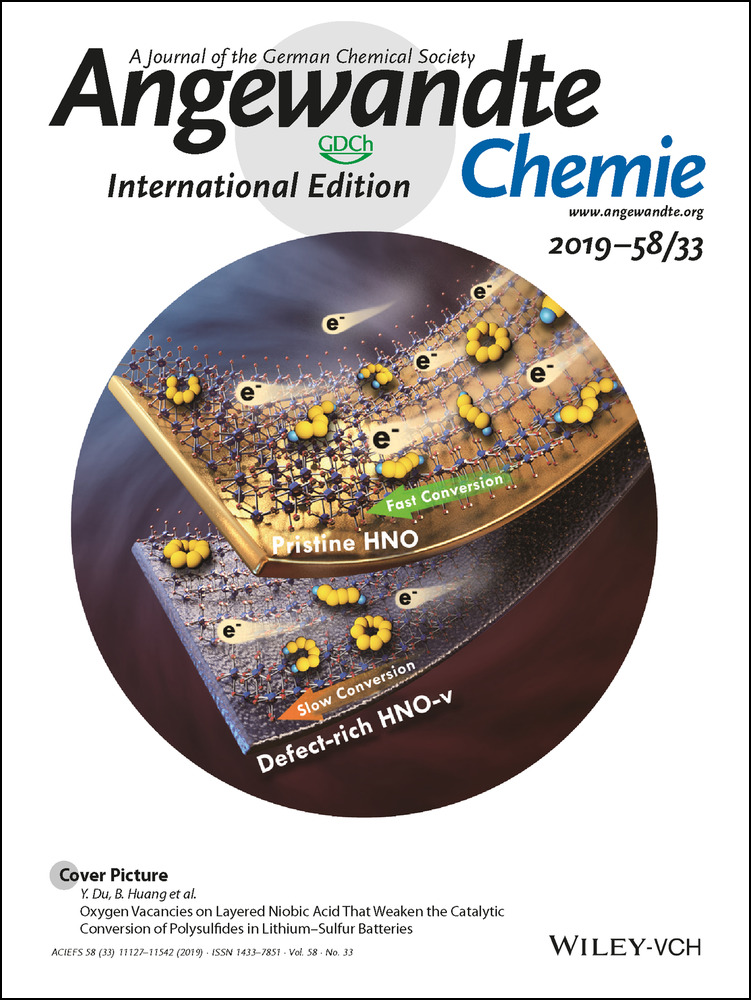Matthias Wagner
Graphical Abstract
Matthias Wagner
The author presented on this page has published his 10. article in Angewandte Chemie in the last 10 years:
“Selective CO2 Splitting by Doubly Reduced Aryl Boranes to Give CO and [CO3]2-”: E. von Grotthuss, S. E. Prey, M. Bolte, H.-W. Lerner, M. Wagner, Angew. Chem. Int. Ed. 2018, 57, 16491; Angew. Chem. 2018, 130, 16729.
-
Date of birth:
-
April 14, 1965
-
Position:
-
Professor of Organometallic Chemistry, Goethe-Universität Frankfurt/Main
-
E-mail:
-
-
Homepage:
-
www.uni-frankfurt.de/58708118/Group of Prof Dr Matthias Wagner
-
ORCID:
-
0000-0001-5806-8276
-
Education:
-
1990 Diploma, Ludwig-Maximilians-Universität München
1992 PhD with Heinrich Nöth, Ludwig-Maximilians-Universität München
1992-1994 Postdoctoral position with Malcolm L. H. Green, Oxford University
1994–1998 Habilitation, Technische Universität München (Mentor: Wolfgang A. Herrmann)
-
Awards:
-
1997 Karl Winnacker Fellowship, Aventis Foundation; 1998 Heisenberg Fellowship, German Research Foundation; 2017 Invitation Fellowship, Japan Society for the Promotion of Science
-
Research:
-
Homogeneous catalysis with transition-metal and p-block compounds; optoelectronic materials; unusual bonding situations; elucidation of reaction mechanisms
-
Hobbies:
-
Traveling and foreign culture, literature, fine arts
The most important thing I learned from my parents is to pick a profession that does not distinguish between work and play.
My favorite place on earth is an unspoiled coral reef in the early morning hours.
If I could have dinner with three famous scientists from history, they would be Charles Darwin, Richard Feynman, and Robert B. Woodward.
And I would ask them about the world and its creatures, the art of teaching complex matters, and how to gain effortless superiority.
I chose chemistry as a career because it combines theory and practice and provides us with compounds that do nowhere else exist in the entire universe.
I would have liked to have discovered the fundamental principles of biological evolution.
My favorite author (fiction) is Philip Roth (especially his novel The Human Stain).
My top three films of all time are 12 Angry Men, Lawrence of Arabia, and Bitter Moon.
My favorite song/piece of music is many pieces of Miles Davis and Leonard Cohen.
My favorite quote is “Science is like sex: sure, it may give some practical results, but that's not why we do it” (adapted from R. Feynman)
I like refereeing because it provides first-hand information and is an indispensable service to the community.
The biggest problem that scientists face is to convince non-scientists of the value of science.





